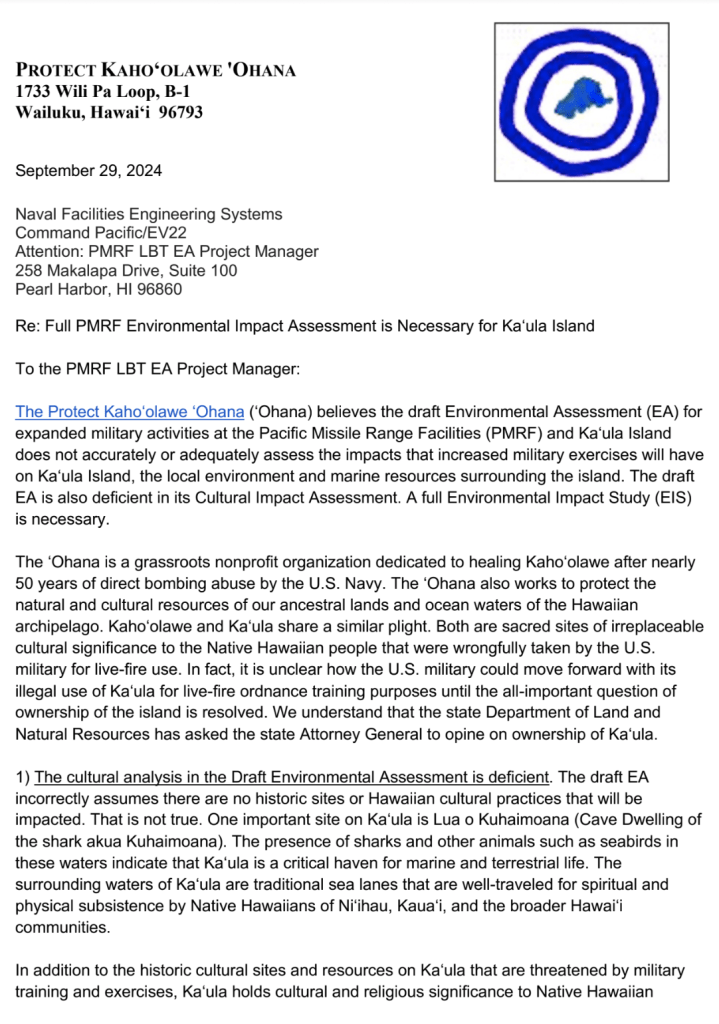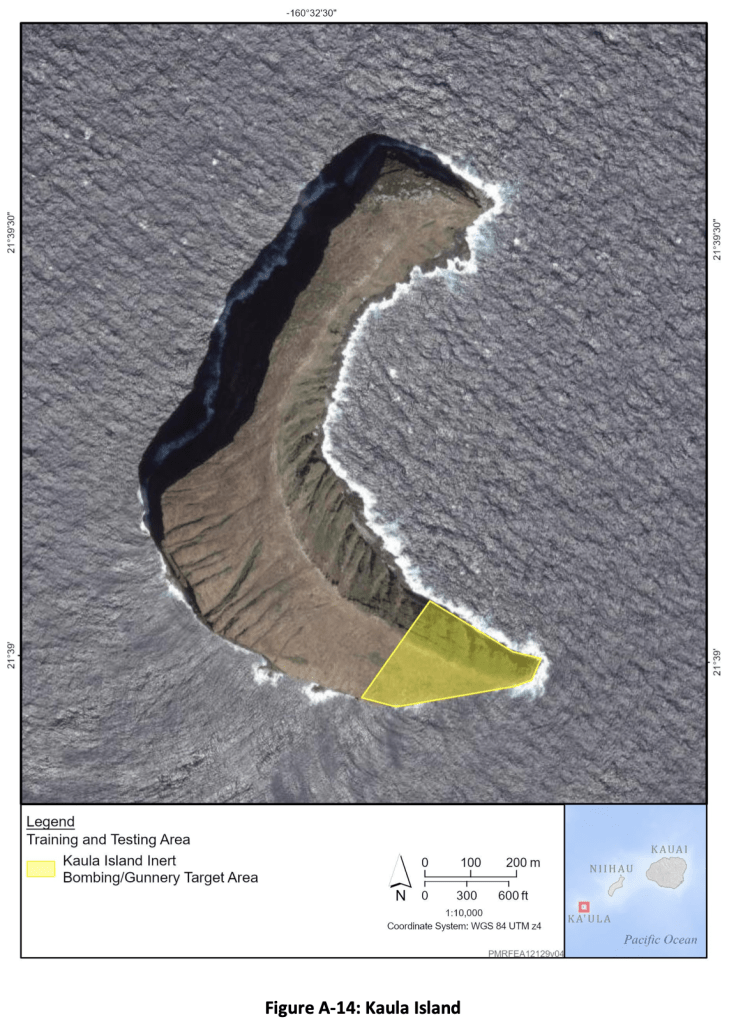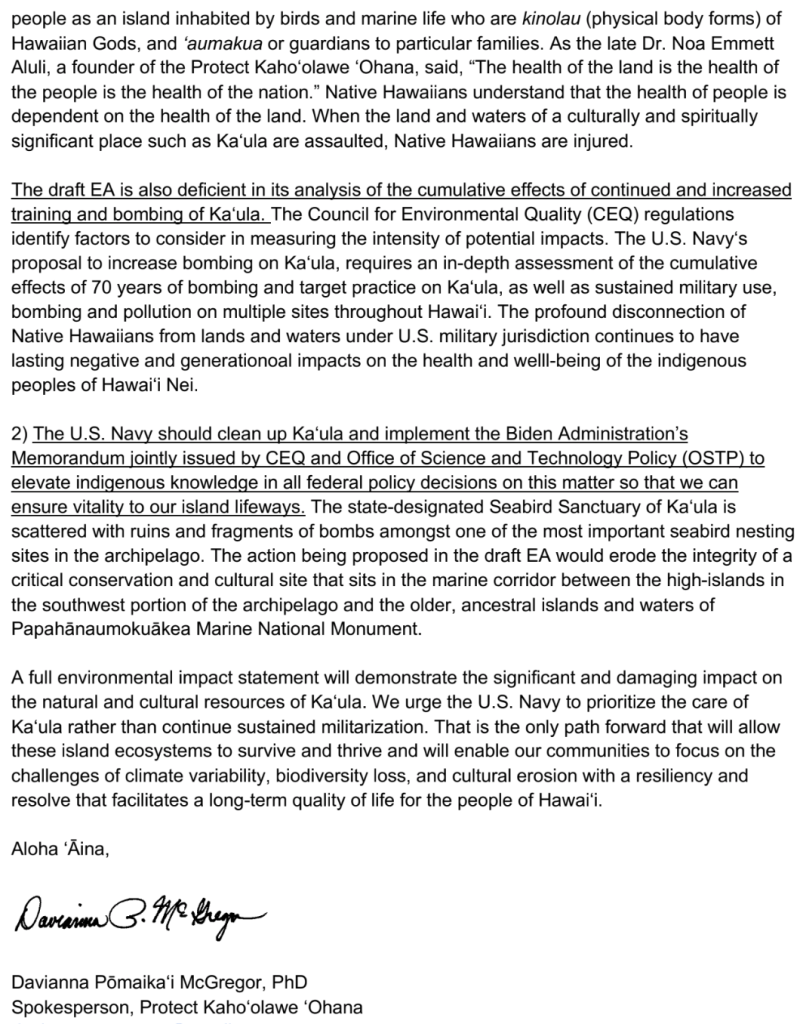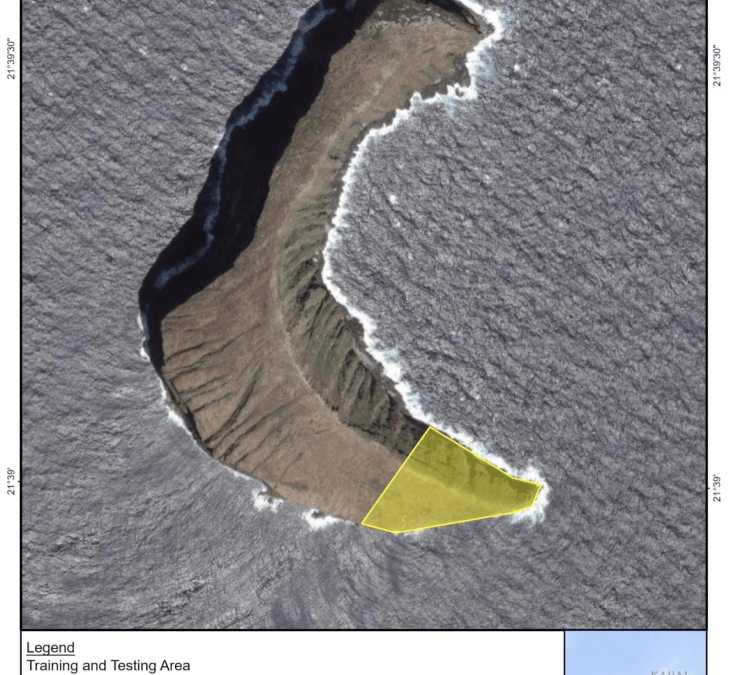Protect Kahoʻolawe ʻOhana Advocates for Full Environmental Impact Assessment for Kaʻula Island
When it comes to preserving precious natural resources and cultural heritage, grassroots organizations play a crucial role in advocating for responsible decision-making. The Protect Kahoʻolawe ʻOhana is one such organization that is raising concerns about the need for a comprehensive Environmental Impact Assessment for Kaʻula Island before any further military activities take place. Let’s delve deeper into the reasons behind their advocacy and the potential implications of not conducting a thorough assessment.
Significance of Environmental Impact Assessments
Environmental Impact Assessments (EIAs) are essential tools used to evaluate the potential effects of proposed projects or activities on the environment. By conducting a comprehensive EIA, decision-makers can identify and mitigate any adverse impacts that might arise from the planned activities. These assessments also provide an opportunity for stakeholders and the public to voice their concerns and contribute to the decision-making process.
The Role of Protect Kahoʻolawe ʻOhana
The Protect Kahoʻolawe ʻOhana is a grassroots organization dedicated to protecting the cultural and natural heritage of the Hawaiian islands, with a specific focus on Kahoʻolawe and now extending to Kaʻula Island. By advocating for a full Environmental Impact Assessment for Kaʻula Island, the organization aims to ensure that any military activities conducted on the island are done responsibly and with full consideration of their potential impacts on the environment and cultural resources.
Concerns Raised by Protect Kahoʻolawe ʻOhana
One of the main concerns raised by the Protect Kahoʻolawe ʻOhana is the inadequacy of the current draft Environmental Assessment (EA) for expanded military exercises at the Pacific Missile Range Facilities and Kaʻula Island. The organization believes that the EA does not accurately assess the cultural impact of the proposed activities on Kaʻula Island and fails to consider the long-term implications for the local environment and marine resources.
The Cultural Significance of Kaʻula Island
Kaʻula Island, like Kahoʻolawe, holds sacred sites of immense cultural significance to the Native Hawaiian people. These sites were wrongfully taken by the US military for live-fire training purposes, raising questions about the ownership and stewardship of the island. The Protect Kahoʻolawe ʻOhana emphasizes the need to resolve these ownership issues before allowing any further military activities on Kaʻula Island.

This image is property of media.mauinow.com.
The Impact of Military Exercises on Kaʻula Island
Military exercises, particularly those involving live-fire training and bombing, can have significant impacts on the environment and local communities. It is essential to assess these impacts thoroughly to ensure that any activities conducted on Kaʻula Island are in line with environmental protection and cultural preservation goals.
Environmental Implications of Military Activities
Military exercises involving gunnery and bombing can result in habitat destruction, soil erosion, and water pollution. These activities can disrupt fragile ecosystems and threaten the biodiversity of the island. Conducting a detailed Environmental Impact Assessment will help identify potential risks and develop strategies to minimize the impact of military exercises on Kaʻula Island’s environment.
Cultural Considerations and Indigenous Rights
Respecting the cultural heritage and indigenous rights of the Native Hawaiian people is paramount when making decisions about land use and resource management. Kaʻula Island’s sacred sites and cultural significance must be fully acknowledged and protected to ensure the preservation of Hawaii’s rich cultural heritage. By conducting a full Environmental Impact Assessment, decision-makers can better understand and address the cultural implications of military activities on the island.
Community Engagement and Stakeholder Participation
Engaging with local communities and stakeholders is essential when planning and conducting military activities on Kaʻula Island. The Protect Kahoʻolawe ʻOhana advocates for meaningful community engagement and consultation to ensure that the concerns and perspectives of those affected by the proposed activities are heard and considered. By fostering open dialogue and collaboration, decision-makers can build trust and work towards sustainable solutions that benefit both the military and the local community.

This image is property of media.mauinow.com.
The Call for Transparency and Accountability
Transparency and accountability are vital components of responsible decision-making, especially when it comes to land use and environmental management. The Protect Kahoʻolawe ʻOhana calls for transparency in the decision-making process regarding military activities on Kaʻula Island and insists on full accountability for the potential impacts of these activities.
Importance of Public Disclosure and Information Sharing
Providing the public with access to relevant information and decision-making processes is crucial for promoting transparency and accountability. The Protect Kahoʻolawe ʻOhana emphasizes the importance of public disclosure of all relevant documents, reports, and assessments related to military exercises on Kaʻula Island. By sharing this information openly, decision-makers can enhance public trust and ensure that the community’s concerns are taken into account.
Advocating for Community Oversight and Monitoring
In addition to public disclosure, community oversight and monitoring play a vital role in ensuring that military activities on Kaʻula Island are conducted responsibly and in compliance with environmental regulations. The Protect Kahoʻolawe ʻOhana advocates for active community involvement in monitoring and evaluating the impacts of military exercises, empowering local residents to hold decision-makers and military authorities accountable for their actions.

This image is property of media.mauinow.com.
Conclusion
The Protect Kahoʻolawe ʻOhana’s advocacy for a full Environmental Impact Assessment for Kaʻula Island highlights the importance of responsible decision-making and environmental stewardship. By raising awareness about the potential impacts of military activities on the island and calling for transparency and accountability in the decision-making process, the organization plays a crucial role in safeguarding Hawaii’s natural and cultural heritage. As stakeholders and concerned citizens, it is essential to support these efforts and ensure that our voices are heard in the ongoing dialogue about the future of Kaʻula Island. Let us work together to protect and preserve this unique and precious resource for future generations.

